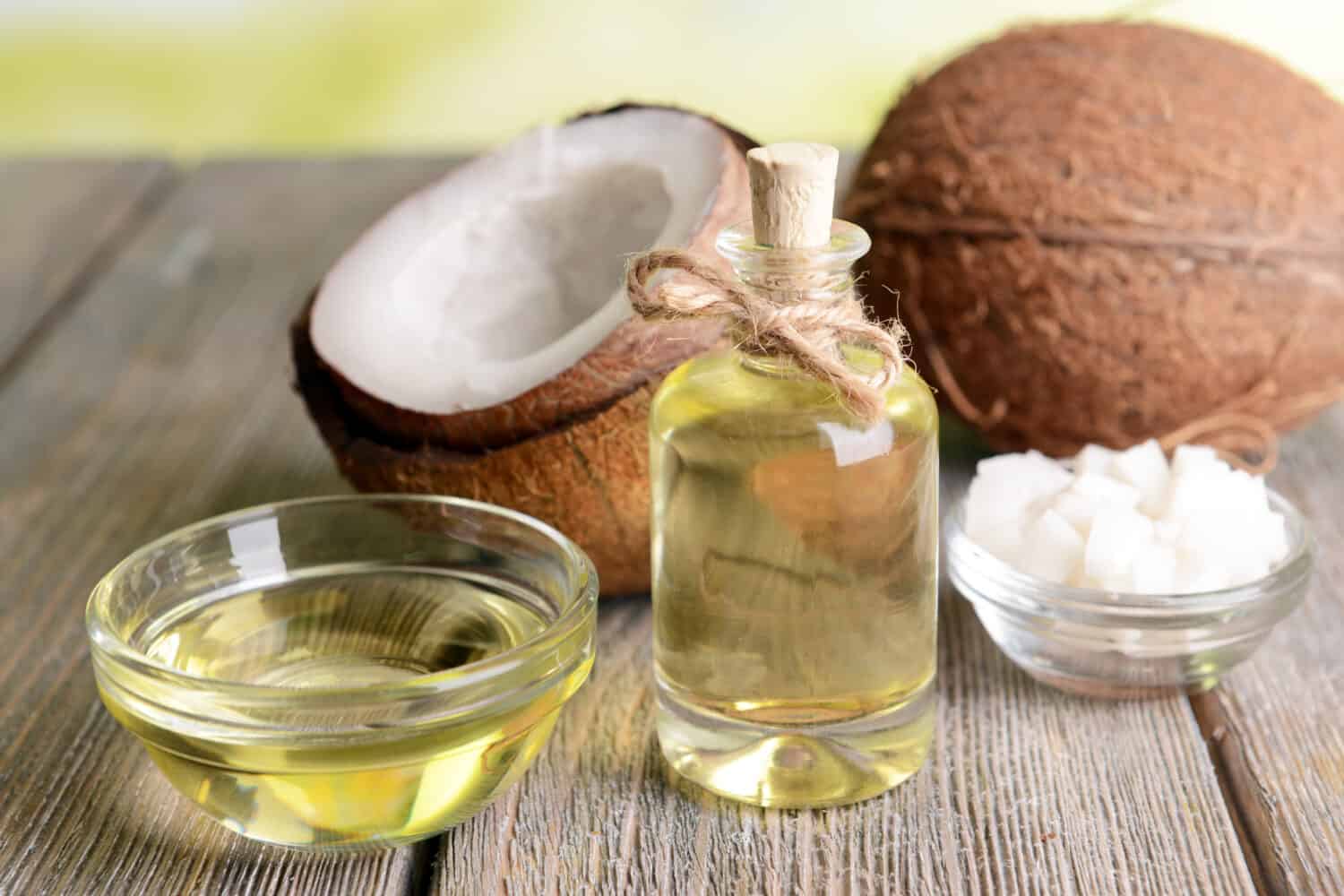For its possible health benefits, coconut oil has become increasingly prevalent, especially in the health community. It is an oil that is entirely fat, which is one reason it is so popular with specific diet trends, like Keto. If you wonder if coconut oil is healthy, you have come to the right place. Below, we will discuss the possible health benefits of consuming coconut oil and the potential downsides.
What is Coconut Oil?
Coconut oil is a cooking oil that is widespread in popularity because it potentially has numerous health benefits. The oil is solid at cold or room temperature and needs to cook on high heat to reach liquid form.
In a survey, 72% of Americans said they believe coconut oil is healthy. However, what's surprising is that only 37% of nutritional experts agree with this belief. Although cooking with coconut oil has become a popular trend, a few possible downsides come with consuming this cooking oil.
First, coconut oil is 100% fat and carries minimal nutrients and minerals. The fat that makes up coconut oil is primarily saturated fat. It also contains lauric acid and myristic and palmitic acids. The latter two can adversely affect heart health because they have the potential to raise LDL levels.
LDL is “bad cholesterol”; too high of LDL can increase the risk of heart disease.
Coconut oil also contains small amounts of polyunsaturated and monounsaturated fats, vitamins, and minerals.

At room or cold temperature, coconut oil is solid.
©iStock.com/jurgakarosaite
Benefits of Using Coconut Oil
The potential health benefits of coconut oil center around medium-chain triglycerides, a saturated fat. MCTs have many potential benefits, but it is important to note that many of these possible health benefits need more in-depth research. Now, let's look at the possible benefits of using coconut oil.
Reduces Hunger
Coconut oil may help reduce hunger. This is because MCTs produce ketones that, in turn, naturally reduce our appetites. Ketones are a form of energy that our brains can use when glucose isn't readily available.
May Help With Burning Fat
Additionally, MCTs may help our bodies burn calories. When our bodies burn more calories than they typically do, it will lead to weight loss.
One reason MCTs contribute to burning fat relates to the above note: MCTs can transform into ketones. These ketones can keep our bodies in a constant fat-burning condition. Of course, this claim needs more research.
While coconut oil does contain MCTs, it is still high in calories. One tablespoon of coconut oil contains approximately 117 calories.
Additionally, coconut oil can increase energy quickly if you need an afternoon pick-me-up. The MCTs travel quickly to the liver and boost our body's energy.
Helps Skin Health
Coconut oil has uses other than consumption. Some possible health benefits of this oil include increasing the overall moisture in one's skin. Some use coconut oil on their hands or skin to protect against outside allergens and water loss.
Additionally, common coconut oil use is on hair to increase the flexibility and strength of the strands.

Coconut oil can help maintain moisture in skin and hair.
©BLACKDAY/Shutterstock.com
Great Source of Antioxidant
Coconut oil has many antioxidants, some of which include:
- flavonoids
- tocotrienols
- phytosterols
- polyphenols
Antioxidants benefit our overall health because they help reduce the damage that can come to our bodies via free radicals. Free radicals can lead to chronic disease and more. Antioxidants come into play by reducing inflammation, increasing the health of our brains, and even helping our eye health. These are only a few of the many benefits that antioxidants offer.
More Possible Health Benefits
There are several more possible health benefits of consuming coconut oil. These include:
- This cooking oil may possibly be able to reduce the effects of Alzheimer's disease. This is because ketones give our brains a different source of energy. These new studies have begun focusing on ketones as a therapeutic approach for patients with Alzheimer's disease.
- Coconut oil is sometimes used as an alternative to commercial mouthwash. While there is a limit on the beneficial evidence, this oil may reduce harmful bacteria in the mouth.
- Coconut oil may have the ability to help reduce seizures. This is because ketones can have an anti-epileptic effect on the brain.
Possible Downsides of Consuming Coconut Oil
While consuming coconut oil may have many health benefits, there is a possible downside. There have been differing reports about the effects of coconut oil on heart health.
In previous studies, it was reported that coconut oil may reduce the risk of heart disease. However, recently, there has been some evidence that coconut oil can increase the LDL cholesterol levels in our bodies. When our bodies have high levels of LDL, the risk of heart disease increases.
This is because coconut oil is packed with saturated fats, increasing the risk of heart disease.
One Last Note
So, is coconut oil healthy? There are many benefits that coconut oil carries. It has the possible ability to aid in burning fat, reducing hunger, and losing weight. Coconut oil may also help reduce the risk of Alzheimer's disease and seizures. However, coconut oil is also high in saturated fats, which can increase the levels of LDL. LDL is bad for our hearts and can increase the chances of heart disease. Therefore, while coconut oil can be very beneficial to our health, it should be consumed in moderation because it does carry some risks.
The image featured at the top of this post is ©Africa Studio/Shutterstock.com
